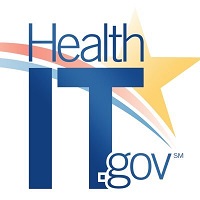 By Ryan Argentieri, Matthew Rahn, Jasmine Agostino, and Alek Sripipatana, ONC
By Ryan Argentieri, Matthew Rahn, Jasmine Agostino, and Alek Sripipatana, ONC
Twitter: @ONC_HealthIT
A few months ago, the Office of the National Coordinator for Health Information Technology (ONC) launched the USCDI+ initiative to support the identification and establishment of domain or program-specific datasets that will operate as extensions to the existing United States Core Data for Interoperability (USCDI). Recently, our colleagues at the Health Resources and Services Administration (HRSA) saw an opportunity to leverage USCDI+ and we have now launched a new USCDI+ collaboration to support HRSA’s Uniform Data System (UDS) reporting through the UDS Modernization Initiative.
ONC and HRSA are working together to align the UDS with interoperability standards and transition to patient-level reporting requirements with USCDI and other quality reporting efforts. We are also establishing a strategic direction aligned with ONC’s Cures Act Final Rule for HL7® Fast Healthcare Interoperability Resources (FHIR®)-based exchange to better support the needs of health centers across the country.
What is the UDS?
The UDS is a standard data set submitted annually by health centers funded under the Health Center Program authorized by section 330 of the Public Health Service (PHS) Act (42 USC 254b). The UDS includes data on patient characteristics, services provided and used, clinical quality measures and health outcomes, staffing, costs, and revenues. Recently, HRSA launched its UDS Modernization Initiative to expand and improve the UDS data set, aligning with health information technology (IT) advancements, such as FHIR. A key pillar of the initiative is the transition from aggregate data submission at the health center level to disaggregated and de-identified UDS patient level submission (UDS+).
Looking Ahead at the ONC-HRSA Partnership
What’s next you might ask? Through an open discovery process, both teams will collaborate to provide expertise, insight, and guidance on what it will take to establish a USCDI+ dataset that supports UDS reporting and identify the other data quality and warehousing needs across HRSA. HRSA will shepherd these efforts by working closely with health centers, Primary Care Associations, Health Center Controlled Networks, electronic health record vendors, and other stakeholders to build and refine proposed UDS reporting innovations by using HRSA’s UDS Test Cooperative (UTC) mechanism.
The UTC will serve as a valued resource to provide “on the ground” insights on how to improve UDS reporting and test the modernized UDS reporting mechanisms. ONC will aid these testing efforts by designing and assisting with the deployment of HRSA’s FHIR infrastructure and incorporating feedback from Health Center Program stakeholders. This modernized infrastructure will ultimately facilitate and reduce UDS reporting burden for health centers by harmonizing with digital quality measure reporting efforts, as well as aligning with ONC’s certification requirements for health IT.
This new ONC and HRSA partnership is a real-world example of how HHS agencies are working together to advance interoperability and each other’s missions.
This article was originally published on the Health IT Buzz and is syndicated here with permission.
